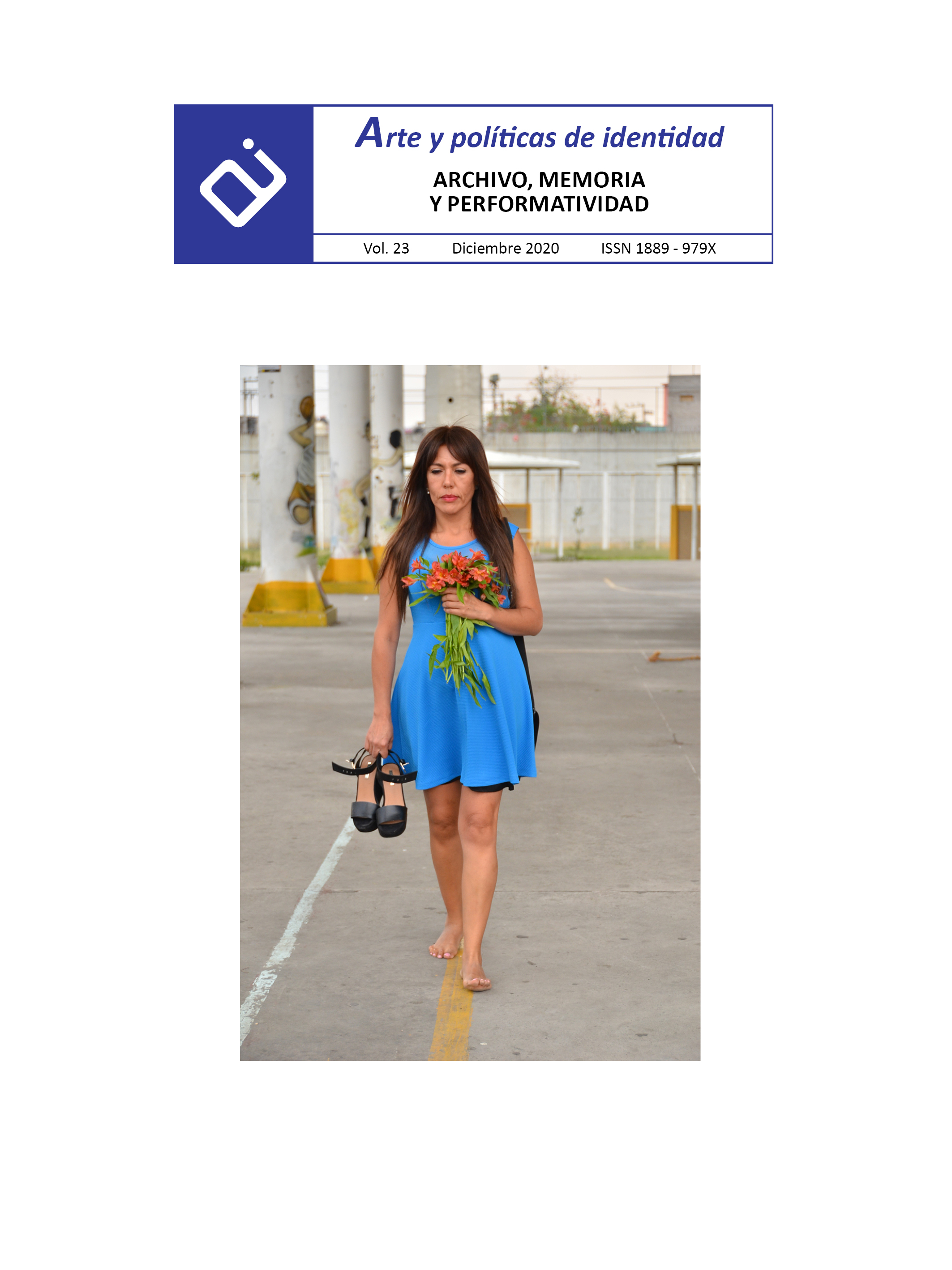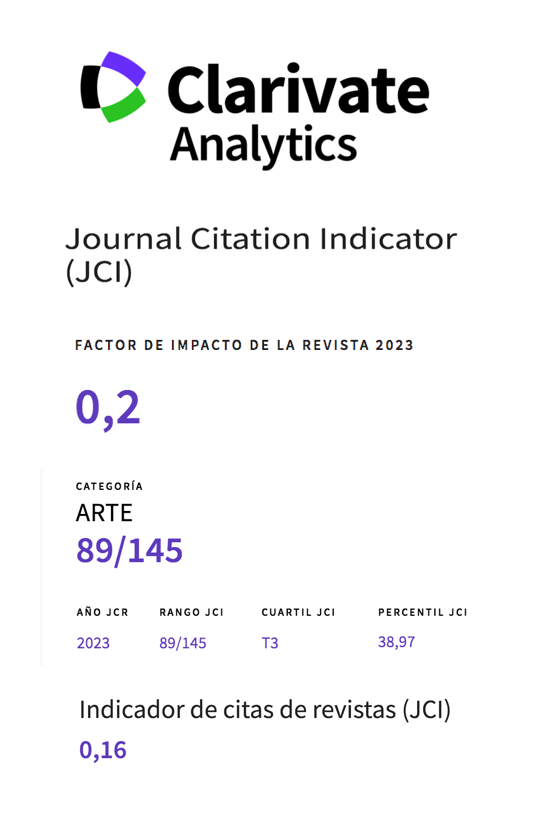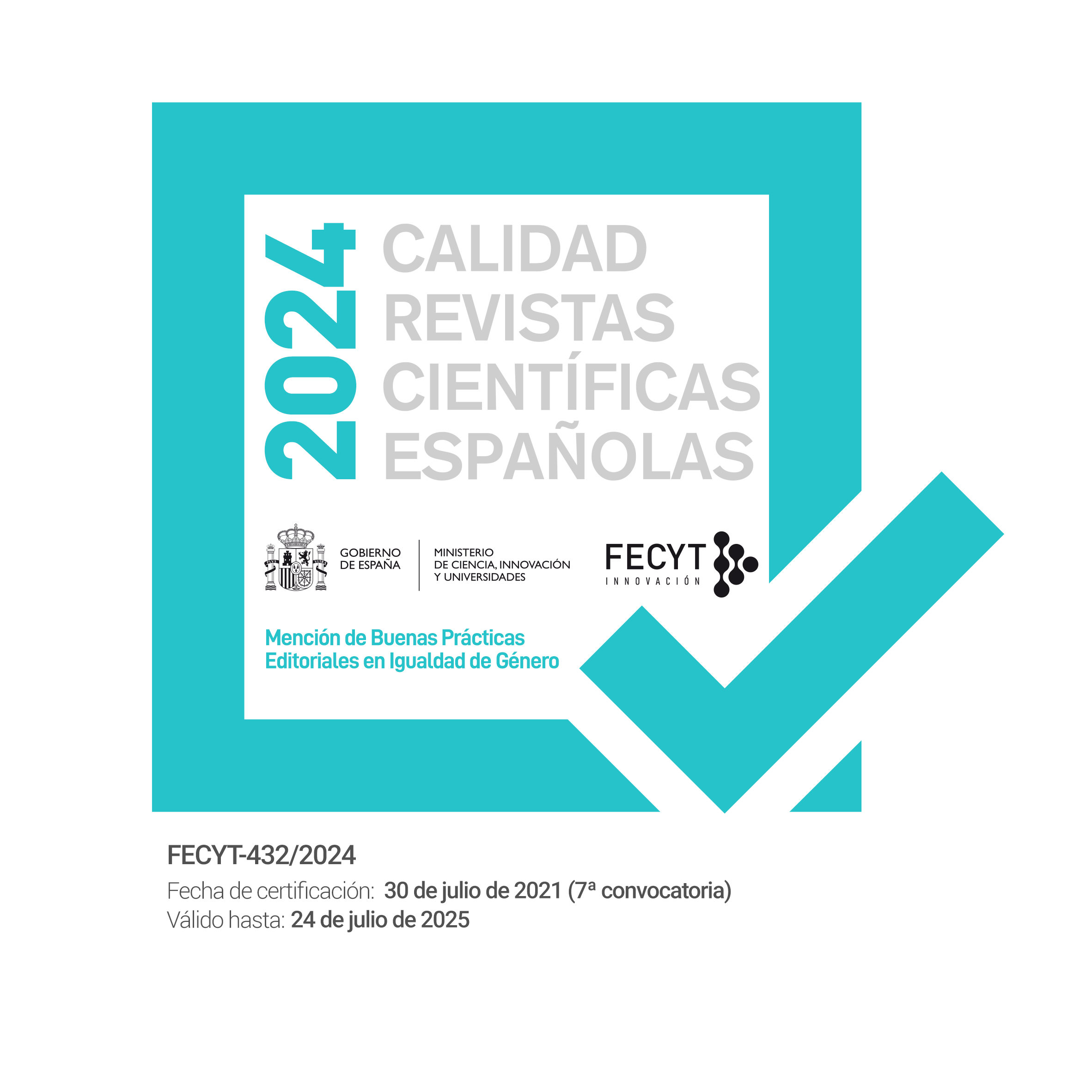La Barraca Transfronteriza. Cinematographic practices and politic of the exit at the Spanish Moroccan border
Abstract
Which forms of political agency can cinematic fiction offer to the contemporary struggles for mobility rights? The purpose of this article is to shape specific angles for a theoretical proposal built during the trajectory of the audiovisual collective La Barraca Transfronteriza, in order to provide these processes with both a complex vision and a methodological reflection. In this paper we propose an inquiry of both methodological and historical references to synthesize the knowledge that emerges from specific political and cinematic practices by extrapolating them beyond the experiences and context in which they emerged. This paper does not aim however to manufacture recipes for creation, but rather approaching ethical issues in collaborative creation environments where the starting point is the unrepeatable and unattainable full awareness of the subjects involved in creation, by paying attention to the processes themselves as spaces of openness, to the modes of relationship from a political perspective, to the contexts and representations involved.
Downloads
-
Abstract447
-
PDF (Español (España))262
References
Anzaldúa, G. (2016). Borderlands/la frontera: the new mestiza. Madrid, España: Capitán Swing Libros.
Ayboga, E., Flach, A. y Knapp, M. (2017) Revolución en Rojava. Liberación de la mujer y comunalismo. Entre la guerra y el embargo. Barcelona, España: Descontrol.
Balibar, É. (2003). Fronteras del mundo, fronteras de la política. Madrid, España: Tecnos.
Brah, A. (1999) The Scent of Memory: Strangers, Our Own, and Others. Fem Rev, 61, 4-26. DOI: https://doi.org/10.1080/014177899339261
Butler, J. (2011). Violencia de Estado, guerra, resistencia. Por una nueva política de la izquierda. Barcelona, España: Centro de Cultura Contemporánea de Barcelona y Katz Editores.
Calderón, N. y Hernández, F. (2019) La investigación artística. Un espacio de conocimiento disruptivo en las artes y en la universidad. Barcelona, España: Octaedro.
Cea-D’Ancona, M. A. (2002) La medición de las actitudes ante la inmigración: evaluación de los indicadores tradicionales de racismo, REIS, 99, 87-111.
Colectivo Situaciones (2005) Something more on research militancy: footnotes on procedures and (In)Decisions. Ephemera, 5(4), 602–614. Recuperado de: https://www.countercartographies.org/wp-content/files/5-4colectivo.pdf
Coordinadora IV Marcha por la Dignidad (2017) Manifiesto Aniversario 6F por la Dignidad y la Justicia en las Fronteras [Manifiesto]. Recuperado de: https://prorefugiadxs.cordoba.cc/wp-content/uploads/sites/14/2017/01/Manifiesto-Marcha-4F.pdf
De Genova, N.; Mezzadra, S.; Pickles, J. (2014) Introduction. En: Casas-Cortes, M. et al. (2014) New Keywords: Migration and Borders, Cultural Studies, 29(1), 55-87. DOI:10.1080/09502386.2014.891630
Deleuze, G. (1985). Cinéma 2. L’Image-temps. Paris, Francia: Minuit.
Estalella, A. y Corsín-Jiménez, A. (2013) Asambleas al aire: La arquitectura ambulatoria de una política en suspensión. Revista de Antropología Experimental, 13(4), 73-88. URI: http://hdl.handle.net/10261/85038
Fanon, F. (2005) The Wretched of the Earth. New York, United States: Grove Press.
Foucault, M. (2000) Defender la Sociedad. Curso en el Collège de France (1975-1976). Buenos Aires, Argentina: Fondo de Cultura Económica de Argentina. Recuperado de: https://www.uv.mx/tipmal/files/2016/10/M-FOUCAULT-DEFENDER-LA-SOCIEDAD.pdf
Garelli, G., Tazzioli, M., Mezzadra, S., Kasparek, B. y Peano, I. (2014) Militant investigation. En De Genova, N.; Mezzadra, S.; Pickles, J. (Eds.) ‘New Keywords: Migration and Borders’. Cultural Studies, 29(1), 55-87. DOI: http://dx.doi.org/10.1080/09502386.2014.891630
Gómez-Esteban, J. H. (2016) El acontecimiento como categoría metodológica de investigación social. Revista Latinoamericana de Ciencias Sociales, Niñez y Juventud, 14, (1), 133-144. Recuperado de: https://www.redalyc.org/pdf/773/77344439008.pdf
Graeber, D. (2009) Direct Action: An Ethnography. Oakland, California: AK Pr Distribution.
Grosfoguel, R. (2011) Decolonizing Post-Colonial Studies and Paradigms of Political-Economy: Transmodernity, Decolonial Thinking, and Global Coloniality, Transmodernity: Journal of Peripheral Cultural Production of the Luso-Hispanic World, 1(1). Recuperado de: http://escholarship.org/uc/item/21k6t3fq
Haraway, D. (1995) Ciencia, cyborgs y mujeres. La invención de la naturaleza. Madrid, España: Cátedra.
Jiménez, M. (2019) Las fronteras como no-lugares. Eldiario.es Recuperado de https://www.eldiario.es/andalucia/NovusOrbis/Fronteras-no-lugares_6_960363996.html
Maeckelbergh, M. (2012) Horizontal Democracy Now: From Alterglobalization to Occupation. Interface: a journal for and about social movements, 4(1), 207-34. Recuperado de: http://www.interfacejournal.net/wordpress/wp-content/uploads/2012/05/Interface-4-1-Maeckelbergh.pdf
Mbembe, A. (2006) Necropolitique. Traversées, diasporas, modernités. Raisons politiques, 21(1), 29-60.
Mezzadra, S. (2005) Derecho de fuga. Migraciones, ciudadanía y globalización. Madrid, España: Traficantes de sueños.
Mezzadra, S. (2008) Capitalismo, migraciones y luchas sociales. Notas preliminares para una teoría de la autonomía de las migraciones. Revista Trasversales, (11), 33-44. Recuperado de: http://www.trasversales.net/t11mezza.htm
Ortiz, D. (2015) La colonialidad en las exigencias de integración a la población migrante. [Conferencia]. Museu d’Art Contemporani de Barcelona (MACBA), Barcelona. Recuperado de: https://www.macba.cat/en/art-artists/artists/a-z/ortiz-daniela
Papadopoulos, D., Stephenson, M. y Tsianos, V. (2008). Escape routes: control and subversion in the twenty-first century. Londres, United Kingdom: Pluto Press.
Rancière, J. (2005) Sobre políticas estéticas. Barcelona, España: Museu d’Art Contemporani de Barcelona i Servei de Publicacions de la Universitat Autònoma de Barcelona.
Rancière, J. (2010) El espectador emancipado. Pontevedra, España: Ellago Ediciones.
Rancière, J. (2012) El desacuerdo. Política y Filosofía. Buenos Aires, Argentina: Nueva Visión.
Rancière, J. (2017) Historia y relato. Viña del Mar, Chile: Catálogo libros.
Samaddar, R. (2010) Emergence of political subject. London, United Kingdom: SAGE.
Sears, D. O. (1988) Symbolic Racism. En: P. A. Katz y D. A. (eds.) Taylor, Eliminating racism, New York, United States: Plenum Press.
Sossi F. (2006) Migrare. Spazi di confinamento e strategie di esistenza. Milano, Italia: Il Saggiatore.
Spivak, G. C. (1985). Subaltern Studies: Deconstructing historiography. En Ranajit Guha (ed.) Subaltern Studies IV: Writings on South Asian History and Society (pp. 330-363). Delhi, India: Oxford University Press.
Virno, P. (2003). Virtuosismo y revolución. La acción política en la era del desencanto. Madrid, España: Traficantes de Sueños.
Wallerstein, I. (2005). Análisis del Sistema-Mundo: Una introducción. México D. F., México: Siglo XXI.
Zé Pequeño, Z. (2017). La théorie du Boza [Manifiesto independiente].
Works published in this journal are subject to the following terms:
- The Service of Publications from the University of Murcia (publishing house) keeps the published works’ copyrights, and favors and allows the reuse of these works under the license indicated in point 2.
- Works are published in the journal’s online edition under the license Creative Commons Reconocimiento-NoComercial-SinObraDerivada 3.0 España(texto legal). They can be copied, used, disseminated, transmitted and publicly exhibited, as long as: i) the author and original source of publication are cited (journal, publishing house and work’s URL); ii) they are not used for commercial purposes; iii) the existence and specifications of this license are mentioned.
3. Conditions for auto-file. It is allowed and encouraged that authors share electronically their pre-print version (the pre-reviewed version) and /or post-print version (the reviewed and accepted version) of their Works before the publication, since it promotes its circulation and dissemination. RoMEO color: green.










